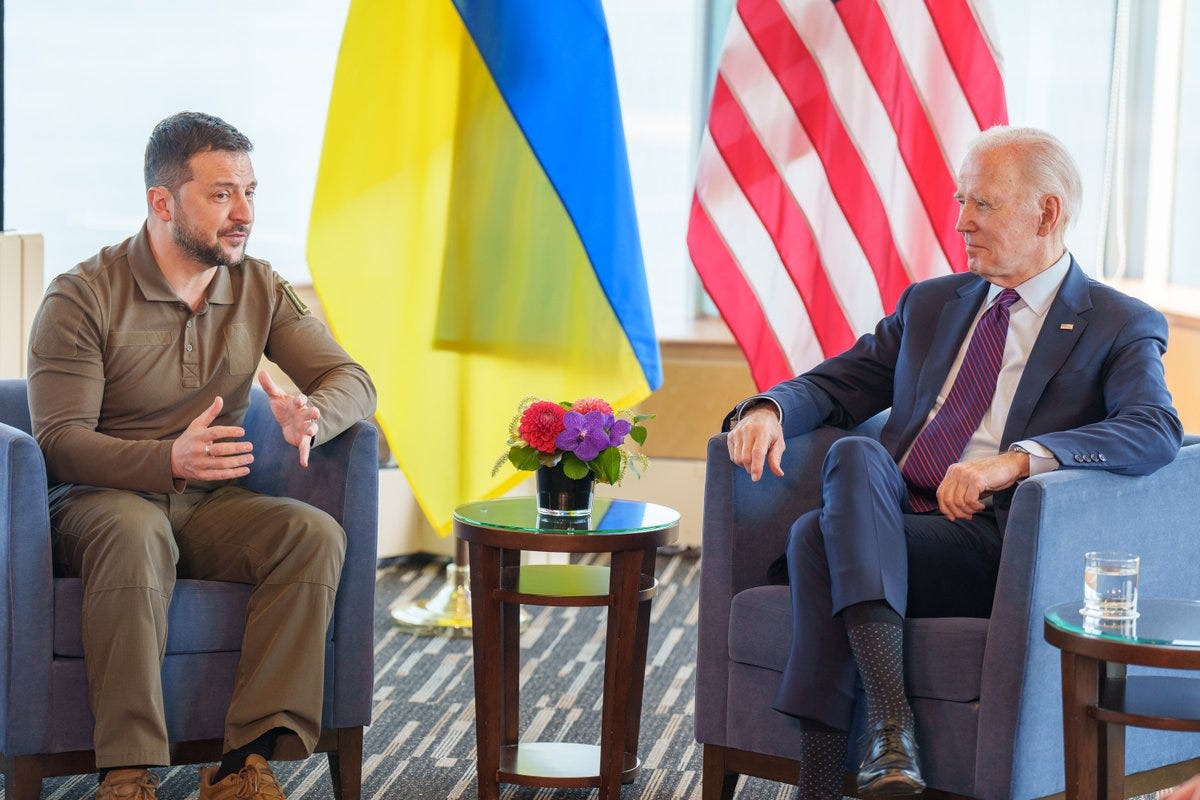The weak statement on nuclear policy issued by the leaders of the G7 at their summit in Hiroshima was a disappointment. It stood in stark contrast to the concrete pledges made by those same leaders to the defense of Ukraine and the upholding of international security norms.
If the Japanese hosts had hoped that placing the summit at the site of the first city destroyed by an atomic bomb would inspire greater movement towards eliminating these weapons, they failed.
We should be grateful, I suppose, that the statement did no harm. It did not call for pulling out of the few remaining arms control treaties, as Sen. Tom Cotton and some of his hawkish Senate colleagues do. It did not call for accelerating on-going nuclear build ups, or issue any new nuclear threats, as nuclear neanderthals in the U.S. and Russia have.
On the positive side, the statement did reaffirm the need to preserve the global ban on nuclear testing and recommitted to the goal of a world without nuclear weapons. ““I’m glad to see the vision includes making sure nuclear arsenals continue to decline,” said Laura Grego, research director and senior scientist with the Global Security Program at the Union of Concerned Scientists. “The United States must follow through on this pledge given that it now is preparing to replace its entire nuclear arsenal at enormous expense, upwards of two trillion dollars.”
And that is the problem. Despite the best efforts of some in the U.S. government, nuclear policy continues to be dominated by those who favor the nuclear status quo and are dedicated to protecting the hundreds of billions of dollars in new weapons contracts. Senior leadership from President Joe Biden on down have basically checked out of the nuclear policy space. Without an aggressive push from the top, the nuclear bureaucracy runs the show. Inter-agency meetings are where arms control proposals go to die.
Nor does is matter if global peace leaders remind the leaders of the morality of their security choices. Pope Francis tried. The Catholic Church (and most religions) consider the very possession of nuclear weapon immoral; they exist for the purpose of murdering tens of thousands of innocents. In a letter to the G7 leaders he warned that nuclear arms offer “only an illusion of peace.” He said:
We need but consider the catastrophic humanitarian and environmental impact that will result from the use of nuclear weapons, as well as the waste and poor allocation of human and economic resources involved in their development. Nor should we underestimate the effects of the continuing climate of fear and suspicion generated by their mere possession, which compromises the growth of a climate of mutual trust and dialogue.
The papal letter had no impact. Like statements that deplore gun violence without doing anything to improve gun safety, the G7 statement will not alter existing nuclear policy in the slightest.
Global Zero leader Derek Johnson says the weak G7 statement “is long on vision but short on strategy. Hiroshima deserves to be more than a symbolic setting, and the world deserves more than thoughts and prayers for disarmament.” There is no sign, however, that the leaders will back up their vision by “reversing course on expansive nuclear modernization plans, rejecting escalatory rhetoric and activities that move nuclear threats closer to conflict, and focusing high-level political actors and energy on arms control and disarmament,” as Johnson and others urged.
By contrast, the summit yielding concrete steps to defend Ukraine from Russia’s unprovoked, brutal invasion. Ukrainian President Volodymyr Zelensky made a surprise visit to the summit and won major new commitments of military aid, including his long-sought request for advanced Western fighter jets, such as the F-16.
Zelensky compared the destruction of Hiroshima to the devastation caused by the nine-month Russian assault on the small city of Bakhmut. “Just the same, nothing alive left, all of the buildings have been ruined,” he said.
The pledges of aid and commitment to joint action were just what Zelensky needs as Ukraine plans its long-awaited counter-offensive. Retired General Mark Hertling compares the coming battle to Eisenhower’s preparation for D-Day. The new pledges of support will help the army commanded by Ukrainian Gen. Valery Zaluzhny calculate their rates of fire and speed of advance as they launch tens of thousands of soldiers in the coming weeks at well-prepared Russian defensive positions. “I predict Zaluzhny and his forces will eventually liberate most — if not all — of the land occupied by the Russians in this offensive,” says Hertling.
The battle of Bakhmut offers hope that the former U.S. Army commander is right. Even as Russian mercenary leader Yevgeny Prigozhin claimed that his Wagner Group fighters had captured the last few bombed-out blocks, Ukrainian forces moved closer to encircling the city. Prigozhin says he will soon withdraw from Bakhmut and hand it over to the Russian army. If the Ukrainian maneuver succeeds, he may not be able to withdraw - or to resupply thousands of his trapped troops.
The G7 aid can help ensure Ukraine’s victory and, thus, restore peace to this embattled nation. I know, as President Obama said “that a call to arms can stir the souls of men and women more than a call to lay them down.” It is easier to pledge new military aid than to cut existing military arsenals.
But, as he said “that is why the voices for peace and progress must be raised together.” We should welcome the commitment to aid the near-term security of Ukraine even as we continue our efforts to advance the long-term security of the planet.






